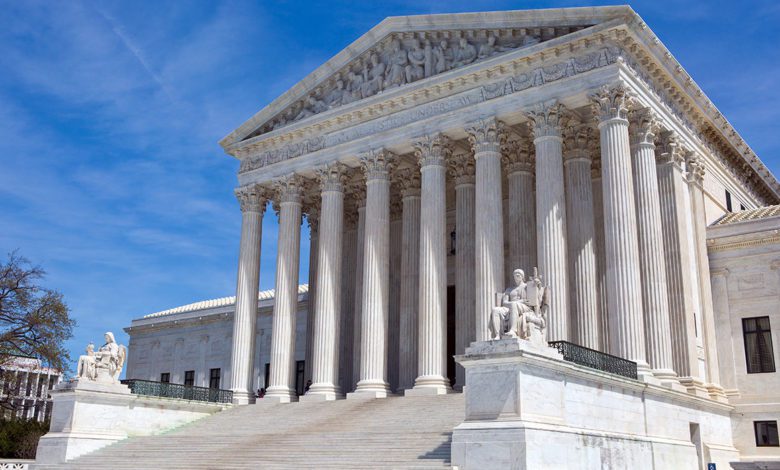
This opinion piece, which originally appeared on the Washington Examiner‘s Opinion section on 21 June 2017, is reprinted here with permission from the author.
Sitting in a hot office in Kansas City, Mo., in 1992, I was trying to do the impossible: develop a perpetual motion machine. I now know how far away I was from such an invention, but it might have been one of the best summers of my life. I learned about magnets, friction, momentum, energy, and, most importantly, I learned about the innovation process.
I didn’t develop a perpetual motion machine (obviously) and nowadays I make sure my children understand that in our household, we obey the laws of thermodynamics.
But my mind was awakened to the possibility of innovation: the principle that has given us cars, airplanes, the Internet, and so on and so on. See, we already have a perpetual motion machine: it’s called the American economy, and we need to make sure nothing stops its forward momentum.
This is what I fight for these days. And I have found an unlikely ally in this fight: Sen. Chris Coons, D-Del., who along with Sen. Tom Cotton, R-Ark., introduced the “Stronger Patents Act” on Wednesday, which will defend and maintain the innovation economy.
Patents are the lifeblood of innovation. They give developers the assurance that the time and effort they put into a project can be monetized. Patents are kind of like land deeds. It would be hard to convince a farmer to put in the back-breaking work of setting up his fields if someone else could just claim them when he was done. While an inventor’s hands might not gnarl like a farmer’s, inventors expose themselves to many of the same risks as their land-tilling brethren.
And to protect them, the government has long defended both parties’ property claims.
However, in recent years intellectual property holders have started to lose ground. The government has weakened their property rights or taken them away altogether. Intellectual property holders have been berated by Congress, the press and even the people who benefit from their technology.
As just one example: the Patent Trial and Appeal Board – created just a few years ago as part of the America Invents Act – is now invalidating parts or all of at least 92 percent of the patents that are subjected to the approval process. One former federal judge called PTAB judges a “Death Squad” looking to kill intellectual property rights.
The job of the 9,000 patent examiners at the U.S. Patent and Trademark Office (USPTO) is tough, but their ability to approve or reject a patent has long been the signal that the government would support inventors and investors. The PTAB forces inventors and investors to worry that their patent is unprotected, which grinds innovation to a halt.
These attacks on the patent system are having a devastating effect on domestic innovation. The shapers of our economy are beginning to look overseas as more hospitable legal environments. For the first time, the United States has slipped out of the top spot in the U.S. Chamber of Commerce’s global intellectual property index for patent protection – we are now an embarrassing 10th!
The “Stronger Patents Act” looks to create a level playing field during the PTAB process and to restore inventors’ trust in the legal system.
But the Coons and Cotton bill doesn’t just stop there. The Stronger Patents Act also restores funding to the Patent Transfer Office and helps stop large infringers from wearing out their smaller competitors in court by permitting preliminary injunctions, making intellectual property rights the same as any other property right.
By ending the “inventor tax,” fees paid by inventors but not used to fund the Patent Transfer Office, Coons and Cotton are attempting to create a solid foundation for patent examination. By creating a level playing field throughout the PTAB process, he is restoring trust in the value of a patent. And by treating intellectual property like other property rights, he’s assuring innovators that the government supports them.
The Stronger Patents Act returns the innovation system to the one that the Founding Fathers envisioned. A system that rewards innovators, instead of the friends of the crown, and provides government protections in exchange for disclosing innovation.
In what sometimes seems like an increasingly-partisan Capitol Hill, defending innovation has emerged as an interestingly bipartisan issue in the last couple of years. Members have started to understand the importance of inventors, investors, and innovation. As the U.S. saw manufacturing move overseas, we maintained our lead on innovation – but now we may lose that as well if we don’t act. We need to lead the rest of the world into the future, and we can only do that through defending strong patent rights.
This is the perpetual motion machine I want to pass along to my kids. Coons and Cotton should be commended for their efforts to defend our uniquely American innovation economy and I hope that the rest of his colleagues join them in their efforts.
|
Charles Sauer (@CharlesSauer) is a contributor to the Washington Examiner’s Beltway Confidential blog. He is president of the Market Institute and previously worked on Capitol Hill, for a governor and for an academic think tank.







On the contrary, America needs a much stronger patent review board even than it has now.
A challenge to patents such as Microsoft’s bid to patent arrow keys, a feature of TeleVideo terminals before Microsoft’s existence, thankfully rejected, to Unisis’ patent, which started the whole software patent mess where they built a device to evaluate an equation, then demanded royalties from anyone who used that equation, would put a stop to a great deal of trolling and other activity which inhibit technological innovation.
And this is actual technology. Some business-method patents, such as those covering the use of cookies to manage charge accounts for online shopping, are analogous to someone saying, “They invented the screwdriver, but they didn’t patent the use of the screwdriver to drive screws. Let’s nail that one down.”
Granted, some elements of this bill are indeed sensible, but are leavened, as is typical of Congress, with a good bit of toxicity.
Stronger patents are great, but let’s try to remember that the job of the USPTO is to *stimulate* innovation, not to impede it, the use to which is is now all to frequently put.
The problem with the U.S. patent system is lawyers and patent trolls. This law will hurt, not help, the system. Innovation requires ACTION, not protectionism. A patent owner that doesn’t use the patent is not an inventor and doesn’t deserve more protection!